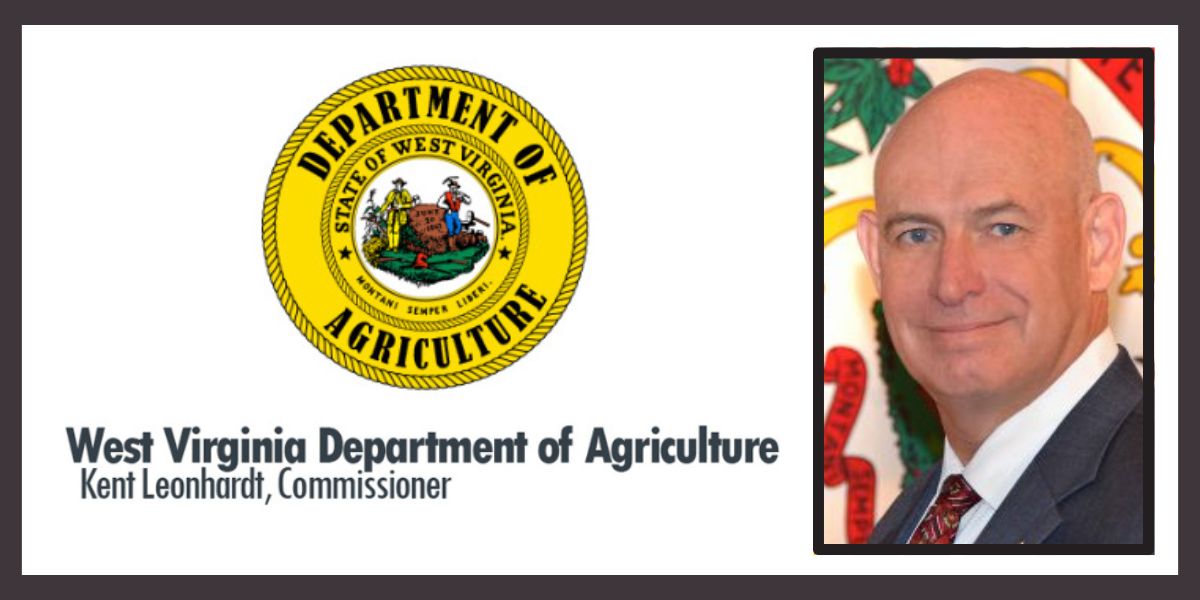Facing what our new Governor describes as a “massive deficit” in our state budget, I can’t help but notice that Medicaid and PEIA are among the primary causes. This raises an important question. What could we have done over the past few decades to reduce these expenses? The answer is simple – promote healthier outcomes through better diet and nutrition. Healthcare professionals have long advised us to eat healthier, and national discussions increasingly emphasize the importance of fresh fruits and vegetables over processed foods. Yet, here in West Virginia, we’ve often ignored the ounce of prevention, only to pay the price for the pound of cure. For decades, we’ve taken the cheaper, short-term path by relying on processed foods. That’s earned us another ranking at the bottom.
The WVDA, primarily through our WV Grown Program, consistently advocates for increasing the number of local foods in our diets while shortening the distance between the farm and table, thus improving our health. We see food as medicine. Growing more food here in West Virginia is good for the environment, good for our health, and good for the economy. For years, we have requested funding for the WV Grown program. Why? Funding for the program can exponentially increase its reach and effectiveness. Connecting West Virginians to our agricultural producers gives them the power to choose local, whether that be from a farmers’ market or straight from the farm. The WV Grown Program supports our local communities to shorten the distance to your dinner table. Money spent locally helps grow our economy. It also reduces the number of processed foods in our diet and leads to healthier lives. The program, to date, has improved the bottom line for many West Virginia agribusinesses. Helping these rural businesses grow improves the quality of life for those communities. Improved communities result in better education outcomes, recreation, and health. Funding WV Grown means supporting local communities economically and culturally. Now is the time to put real dollars behind this program and ensure our farmers, producers, and communities reap the benefits.
The USDA SNAP Stretch program has been a tremendous asset to West Virginians, allowing SNAP/EBT customers to double the value of their benefits. When shoppers use their SNAP/EBT card at participating markets, retailers, and farm stands, they receive an immediate dollar-for-dollar match to spend on fresh fruits and vegetables. A minimal amount of stable state funding would be a huge win for our senior population, and the funding will be an income multiplier for producers selling at farmers markets to our seniors. SNAP Stretch goes hand in hand with the FARMacy (food as medicine) programs gaining popularity and providing healthier outcomes to those living in food deserts that rely on dollar stores and gas stations for their meals.
Fresh foods do contribute to healthier outcomes. The closer we grow our food to the consumer the safer and healthier we are. Growing food locally adds to food security and supply stability. During COVID we saw food shortages, not because food was scarce, but rather the supply chains were disrupted. These disruptions are now an opportunity for West Virginia to move forward. Here in West Virginia, we have a huge food gap. That gap is an opportunity for growing our local economy. All of our neighboring states invest in their food systems. Some of those states use tobacco settlement funds, while others use legislative financial appropriations. It makes no difference to me how financial assistance is made available, but if we want a different outcome, then we need to try something different to improve our health.
West Virginia has a chance to break the cycle of poor health and improve our historically low public health rankings. By investing in local agriculture, we’re not just feeding our families, we’re building a healthier, more prosperous future for our state. Key steps toward this goal include insisting the Fresh Food Act is enforced, funding WV Grown, and improving the implementation of USDA food assistance programs.
A small investment in West Virginia agriculture will return big dividends.
Kent A. Leonhardt
West Virginia Commissioner of Agriculture














